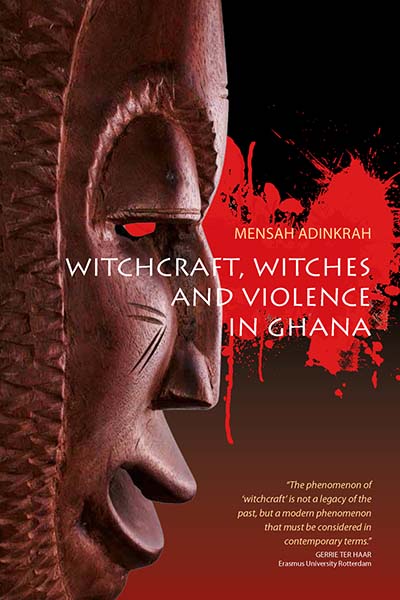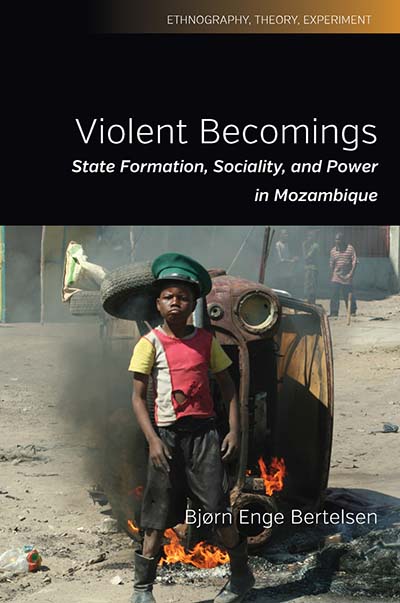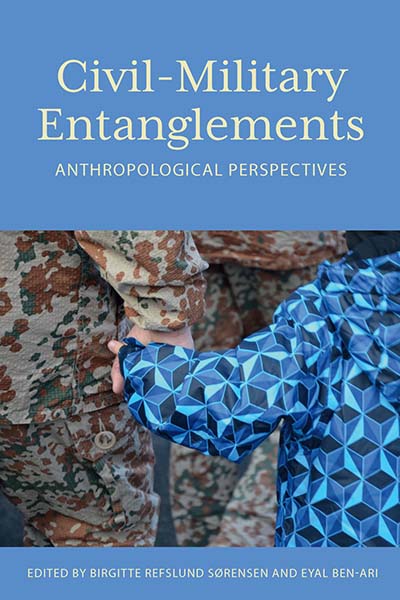
See Related
Anthropology JournalsEmail Newsletters
Sign up for our email newsletters to get customized updates on new Berghahn publications.
Witchcraft, Witches, and Violence in Ghana
Mensah Adinkrah
338 pages, 19 illus., bibliog., index
ISBN 978-1-78238-560-8 $135.00/£104.00 / Hb / Published (August 2015)
ISBN 978-1-78533-516-7 $34.95/£27.95 / Pb / Published (May 2017)
eISBN 978-1-78238-561-5 eBook
Reviews
“By attending to witch hunts in all its facets in Ghanaian society, [the author] offers the most in-depth examination of witchcraft to date… Although the author focuses on Ghana, the work draws attention to the fact that witchcraft-related violence is not unique to the country, but very much a part of global history, past and present. The wide variety of sources it pulls together and the human face it gives to witchcraft related violence are the biggest strengths of Witchcraft, Witches, and Violence. This is a valuable book for both undergraduate and graduate students in anthropology, sociology, cultural studies, and African studies.“ · International Journal of African Historical Studies (IJAHS)
“This book is notable for its empirical focus… [The case studies] underscore the author’s claim that the phenomenon of ‘witchcraft’ is not a legacy of the past, but a modern phenomenon that must be considered in contemporary terms.” · Gerrie ter Haar, Erasmus University Rotterdam
“I am very impressed by the breadth and depth of the research that went into the book. [It] is also well written. The language is accessible and would appeal to both academic and non-academic audiences.” · Charles Quist-Adade, Kwantlen Polytechnic University
“The book is thorough and well-documented. The wide range of sources, from music to newspapers to first-hand experiences, makes this book a rich resource for scholars.” · Laura Cochrane, Central Michigan University
Description
Witchcraft violence is a feature of many contemporary African societies. In Ghana, belief in witchcraft and the malignant activities of putative witches is prevalent. Purported witches are blamed for all manner of adversities including inexplicable illnesses and untimely deaths. As in other historical periods and other societies, in contemporary Ghana, alleged witches are typically female, elderly, poor, and marginalized. Childhood socialization in homes and schools, exposure to mass media, and other institutional mechanisms ensure that witchcraft beliefs are transmitted across generations and entrenched over time. This book provides a detailed account of Ghanaian witchcraft beliefs and practices and their role in fueling violent attacks on alleged witches by aggrieved individuals and vigilante groups.
Mensah Adinkrah, Ph.D., is Professor of Sociology and Criminal Justice at Central Michigan University. He was a U.S. Fulbright scholar to Ghana and has held positions at University of the South Pacific and Metropolitan State University. Adinkrah is author of Crime, Deviance & Delinquency in Fiji (1995), Violent Encounters: A Study of Homicide Patterns in Fiji (1996), and numerous scholarly articles.


